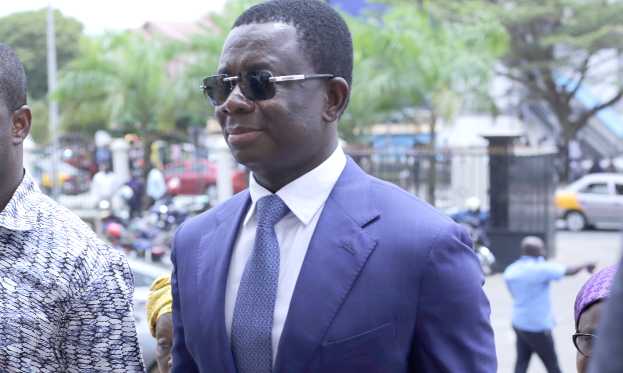Published
4 weeks agoon
By
Diella Teku
The Supreme Court will convene today, Friday, December 27, to deliberate on an application for judicial review filed by the opposition National Democratic Congress (NDC). The application contests a High Court ruling issued on December 20, which instructed the Electoral Commission (EC) to re-collate parliamentary election results in nine disputed constituencies.
The High Court’s decision came in response to a mandamus application submitted by New Patriotic Party (NPP) parliamentary candidates from the affected constituencies. It directed the EC to carry out its constitutional duty of verifying and re-collating results to address concerns raised about irregularities.
To date, the EC has completed the re-collation process in seven of the nine constituencies. However, results for Dome/Kwabenya and Ablekuma North remain pending, intensifying tensions between the political parties.
The NDC has vehemently opposed the High Court’s ruling and the EC’s compliance. The party has described the re-collation process as “illegal and baseless,” asserting that the directive exceeds the High Court’s jurisdiction. They argue that the order compromises transparency, procedural fairness, and the overall integrity of the electoral process.
The NDC’s legal team contends that the ruling undermines the constitutional framework for resolving electoral disputes and sets a worrying precedent.
Today’s hearing holds significant implications for Ghana’s electoral dispute resolution mechanisms. The Supreme Court’s ruling could either uphold the High Court’s directive, reinforcing the EC’s authority to re-collate results in contested constituencies, or side with the NDC, potentially nullifying the re-collation processes already undertaken.
Observers and political stakeholders are closely monitoring the case, which has sparked intense public and political debate. A ruling in favor of the NDC could reshape how electoral grievances are addressed in the country, while a decision upholding the High Court’s ruling might solidify the judiciary’s role in mandating corrective actions during disputes.
As the case unfolds, it underscores the critical role of the judiciary in safeguarding electoral integrity and ensuring justice in democratic processes.


Supreme Court Quashes Re-Collation Orders in Four Constituencies: A Boost for NDC’s Legal Strategy


Supreme Court Upholds Legislative Autonomy in Human Sexual Rights Bill Case


Supreme Court to Rule on Anti-LGBTQI+ Bill Challenge, Case Delays Attributed to Parties’ Inaction


Supreme Court Curbs Speaker Bagbin’s Power, Protecting Constituents’ Right to Representation


Supreme Court to Deliver Judgment on Speaker’s Controversial Declaration of Vacant Parliamentary Seats on Tuesday


Supreme Court Set to Rule on Speaker’s Authority Over Parliamentary Vacancies in High-Stakes Case


Supreme Court Resumes Hearing on Anti – LGBTQ+ Bill


E-Levy will go even if we don’t get justice from Supreme Court – Ablakwa hails Mahama.

SC ruling on Opuni’s case a travesty of justice”- NDC

























